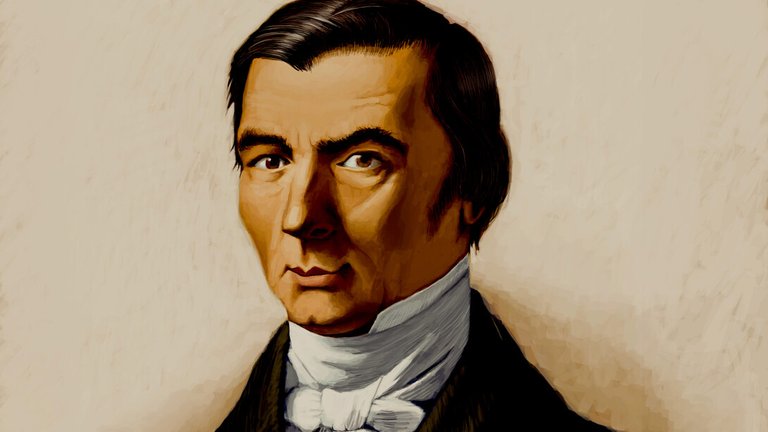Frédéric Bastiat And His Works
Introduction
I had no previous knowledge of Frédéric Bastiat, but after reading The Law, The Candlemaker’s Petition, and For The Government, I respect his ideologies and think that he was very enlightened, especially for his time. I want to focus on each reading while also looking at the similarities between the readings.
Government
The reading Government has many points that I both agree with and disagree with. The misconception of government has been something that I have personally struggled with as long as I can remember. The calling for a clear, realistic definition of “government” seems almost impossible, as the government has been many things in its lifetime. “Politics” now seems to be seen as synonymous with “government”. The government is not perfect, but society has many unrealistic expectations. It constantly faces burdens and demands from all places on the political spectrum. We want the government to fix economic and social issues, fund infrastructure, provide better education, and ensure the general welfare of its people, but we despise higher taxes and government interference, things that would be required for such services. Every side tries to benefit at the other’s expense. The people’s unattainable ideal solution is for the government to solve everyone’s problems somehow while requiring nothing in return. Politicians use these expectations to further their own campaigns, making promises they cannot fulfill. After they use these fallacies to get themselves into office, citizens realize that they are not capable of fixing everything, and they call for new leaders. The cycle continues; the new running government officials promise the same impossible goals. Bastiat says that the government should focus on guaranteeing justice and security, not try to become this universal provider. He addresses the cycle of how we expect something for nothing, calling for endless revolutions.
Candlemakers
In The Candlemakers’ Petition, Bastiat uses a more satirical and extremist way of writing to protest high tariffs and unethical policies. He curates a story about candlemakers claiming that natural sunlight is an unfair competitor because it provides “free light.” They call for all windows, skylights, and openings to be covered, forcing people to buy artificial lighting. The candlemakers are a metaphor for the government, claiming that banning sunlight would stimulate many local industries, from tallow and oil production to mining and whaling. Limiting these “free resources” increases economic activity, disregarding the fact that this would benefit companies, not society. The true meaning behind this writing is the critique of governments protecting industries from competition by limiting consumer choice. “If banning cheaper foreign goods is justified to protect domestic industries, then logically, banning sunlight should be justified, too.” The government often justifies tariffs by arguing that foreign products are “too cheap” and harm local producers. Bastiat is exemplifying that if cheaper goods are banned, shouldn’t completely free goods also be banned? This story calls out both tariffs and socialism simultaneously. He questions policymakers, asking if they would rather people benefit from freely available resources or impose artificial scarcity to protect native producers. In his eyes, protectionism is unethical because it forces people to pay more for things they could have for less. His story reminds me of Dr. Seuss's story, The Lorax. In the movie adaptation, the main villain, Mr. O’Hare, convinces the people of “Thneedville” to buy his bottled air by using their fear of pollution and making them think they need his products. His company facilitates the idea that trees are “bad” because they "produce free air" that they cannot trust. He hides the truth about trees and the possibility of natural air returning. He stops the main character from planting the last “Truffula tree” seed so that trees cannot come back to their city. I’m not sure if Dr. Seuss got inspiration from The Candlemakers’ Petition, but it would make sense if he did.
Law
In The Law, Bastiat talks about how laws were made to protect individual rights: life, liberty, and property. My favorite point from this reading is that these rights predate the government; they are not granted by it. He claims that if a government were truly just, it would only act to protect these rights. Bastiat points out that instead of protecting one's natural rights, the law has been used to violate them through a process called legal plunder. Legal plunder occurs when the government takes property from one group and gives it to another in the name of law. This reading is a call back to both the Candlemaker example and Government, as it addresses tariffs, subsidies, protectionism, and welfare programs funded through taxation, alongside the conflict between different social classes as everyone seeks to benefit from government intervention. He addresses socialism in this reading, as he again reinstates the idea that the government should not try to create wealth, morality, or education; it should only protect rights. He has a strong sense of justice and believes that true justice comes from individuals being free to pursue their interests without government interference.
Similarities
The three passages share a common theme of critiquing government overreach and the illusion of government as a creator of wealth. I wholeheartedly agree with his idea that the government should stand for the protection of life, liberty, and property; it cannot be an endless provider of wealth. It cannot create wealth; it can only protect or redistribute it, and redistribution leads to economic and social conflict. Going into these readings, I did not expect myself to agree with a French economist from the 1800s, but I thoroughly enjoyed these readings and find Bastiat to be a very respectable scholar.

